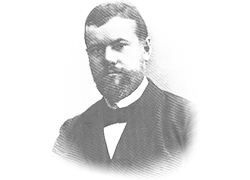Professor Cornwell’s research focuses mainly on social networks among individuals and organizations. Most of his work explores the implications of these networks for individual and organizational outcomes, the production of social capital, and the reproduction of social stratification. He has documented the importance of integration in social networks for individuals’ health, social influence, and employment, as well as the reciprocal effects of health and life-course experiences on the ability to achieve and maintain powerful positions within networks. He has also explored the indirect impact individuals’ networks have on the influence and success of the larger organizations (e.g., unions) to which they belong. Some of his recent work in economic sociology explores the link between state unemployment rates and the statewide diffusion of influenza, the influence of individuals’ labor force status and workers’ nonstandard work schedules on daily rates of social contact, and the role of voluntary association networks in augmenting cohesion among community elites.
Expertise
Current Research Interests
Sociology of health, social network analysis, organizations, sociological theory, economic sociology, social stratification
Selected Publications & Presentations
- (With E. York) “Access to Expertise as a Form of Social Capital: An Examination of Race- and Class-Based Disparities in Network Ties to Experts.” Forthcoming, Sociological Perspectives.
- (With Edward O. Laumann, and L. Philip Schumm) 2008. “The Social Connectedness of Older Adults: A National Profile.” American Sociological Review 73:185-203.
- 2007. “The Protestant Sect Credit Machine: Social Capital and the Rise of Capitalism.” Journal of Classical Sociology 7:267-90.
- (With Jacobs, David) 2007. “Labor Markets and Organizations: A Screening Theory of Hiring Networks and Racially Homogenous Employment.” Research in Social Stratification and Mobility 25:39-55.
- (With Danielle Payne) 2007. “Modeling Peer Influences on Delinquency: Beyond the Direct Contact Hypothesis.” Journal of Quantitative Criminology 23:127-150.
- (With Erin York) 2006. “Status on Trial: Social Characteristics and Influence in the Jury Room.” Social Forces 85:455-77.
- 2005. “Contextualizing Closeness Centrality: Incorporating Disconnectedness via the Complement.” Connections 26:70-81.
- (With Jill Ann Harrison). 2004. “Union Members and Voluntary Associations: Membership Overlap as a Case of Organizational Embeddedness.” American Sociological Review 69:862-81.

